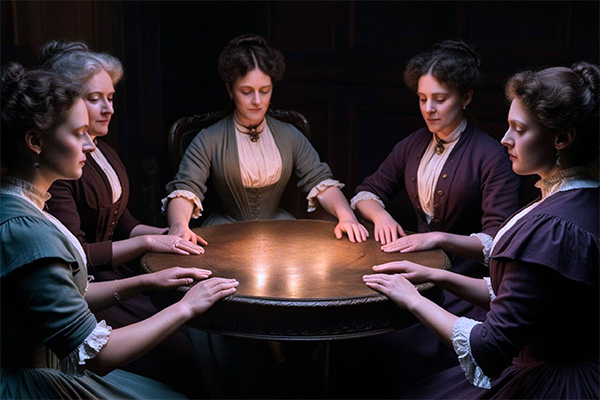afterlife
What I Learned From Egyptian Goddess Hathor
 From the moment I first encountered her, Hathor, the ancient Egyptian goddess, she felt like a luminous companion on my spiritual path.
From the moment I first encountered her, Hathor, the ancient Egyptian goddess, she felt like a luminous companion on my spiritual path.
To me she isn’t just a myth or a symbol. She’s a living presence and a spiritual guide. She’s also a gentle yet powerful presence in my psychic and healing work. Her energy speaks to me on a deeply intuitive level.
My connection with Hathor began unexpectedly while reading a book on ancient Egypt. Suddenly, I felt a comforting warmth surround me. It was as if a long-lost friend had returned.
Then, I was guided to raise my hands, palms facing outward and I sensed her hands and palms facing mine. A glow of golden light flashed before me and I felt a warm sensation entering my palms and almost as though my hands were being supported and held, and all time was suspended.
In that timeless and powerful moment, Hathor’s nurturing love enveloped me, and her ancient wisdom whispered that time is merely a construct.
In the Infinite Light, there is no past or future, only this sacred now. In is in the present moment that healing and miracles unfold.
As a psychic, I find that Hathor naturally aligns with my practice. She is not just the goddess of love and beauty, though she radiates both. She embodies a vibrant, nurturing energy that opens emotional and spiritual channels.
The Miracle Gift Of A Reincarnated Pet
 Do animals reincarnate? As an animal lover and pet owner, I believe they do!
Do animals reincarnate? As an animal lover and pet owner, I believe they do!
John Edward, the famous psychic medium, once told how his dog came to him in a dream after he died. Apparently, the dog told him that he would be the new dog “with the black spot.”
Soon after, he went to a friend’s house who had a litter of puppies. He really bonded with one of the puppies – it followed him everywhere. However, none of the puppies had a black spot? Edward’s wife took pictures of him with the puppy because she also felt the connection. They left without taking any of the puppies.
When the film was developed, there was a black spot on one of the photos! The black spot appeared in the picture over the puppy he had such a special connection with. Edward immediately went back and got his beloved “new” dog.
My friend’s dog, Inky, was all white with an unusual dark spot on his back. He also had a strong personality and would follow her on her daily walk to work until she turned and said, “Inky, go home.” When he passed away at a young age, my friend was devastated. I remember her saying that she lay on the floor for days, crying, curled up in a fetal position.
A few months later, she walked by a pet store. There was a bunny in the store that looked exactly like Inky. It was all white, with the same distinctive ink pattern on its back. My friend adopted the rabbit, who also turned out to have the same personality as Inky. He would follow her on her way to work until she said, “Bunny, go home.” Continue reading
Coping With The Loss Of A Loved One
 The loss of a loved one is one of the most profound and challenging experiences we can have. Even if we have a deep spiritual belief that our loved one has crossed over into the spirit realm free of pain and suffering, the grief of their physical absence remains.
The loss of a loved one is one of the most profound and challenging experiences we can have. Even if we have a deep spiritual belief that our loved one has crossed over into the spirit realm free of pain and suffering, the grief of their physical absence remains.
It is natural to mourn their departure, to feel the sting of their absence in our daily lives, and to struggle with the reality of a world that feels less complete without them.
For those who have lost a parent, this grief can bring an added layer of vulnerability. Regardless of our age, the loss of a mother or father can leave us feeling untethered, with a foundation in life that once provided security and guidance now shaken. Even if we have spent years caring for them through illness or decline, their passing can still leave us feeling profoundly alone.
This transition marks a significant shift, not only in our outer reality, but also in our inner identity. And yet, in the depths of grief, there is an opportunity for deep reflection, gratitude, and connection.
One of the most powerful ways to navigate grief is to focus on gratitude for the connection you shared with your loved one. Their love, wisdom, and presence shaped you in countless ways, and that influence does not disappear with their passing. Celebrate their life with vigor. Share their stories, embrace cherished memories, and allow their laughter to echo through your heart.



